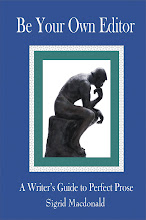Peggy, the ambitious secretary turned copywriter, said, "I wish I would have known that." (I confess that I can't recall the context, so that should encourage you to rent the DVD.) This is a no-no.
Here's how she could have done it differently: "I wish I had known that." Or "I would have liked to have known that." I prefer the simpler version, so I would go with option A: "I wish I had known."
There is never a good time to use the phrase "wish I would have." At least, I can't think of one. If you can, let me know. But there are lots of times that we can say, "wish I had" or "I wish I would." It's fine to say, "I wish I would exercise more," or "I wish I had known that Jon Hamm planned to take his shirt off during the season premiere, so I could've taped it for all of eternity." What you want to avoid is mixing the words "wish" with "would have."
Happy writing and Mad Men viewing.
Sigrid Mac


